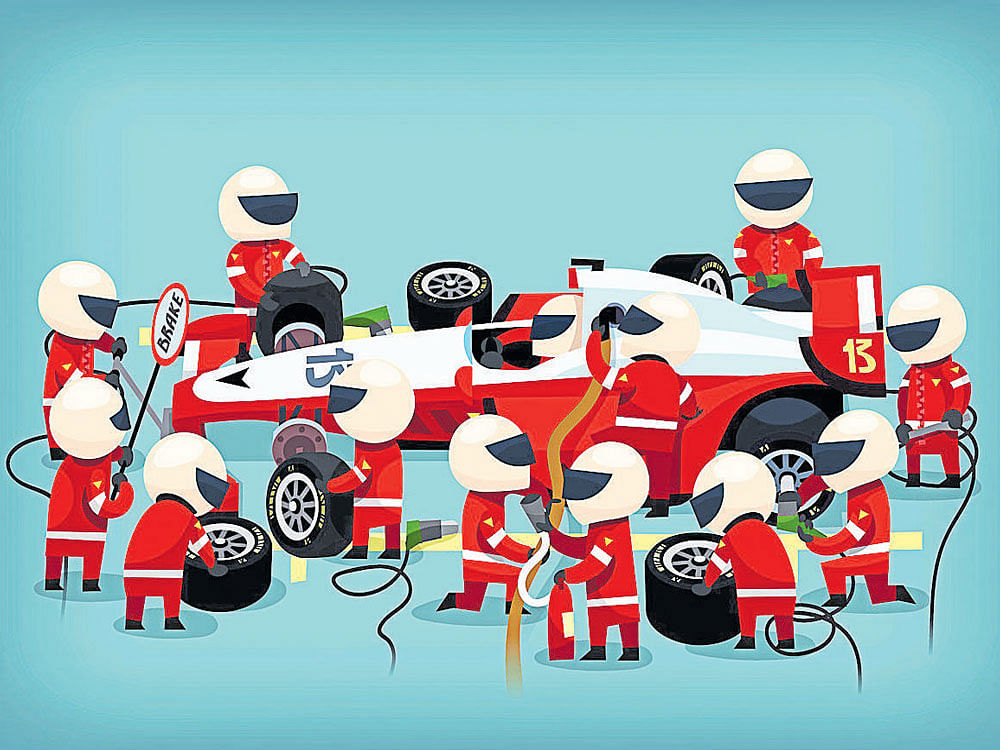
Motorsport is a global sport with the jewel of its crown, Formula One, having an audience of 527 million television viewers from more than 187 countries.
However, motorsport is much more than the 21 Grand Prix races held across the world in 2016; it is a wide range of levels and disciplines that take place at a variety of local, national and global events.
As would be expected, major original equipment manufacturers (OEMs) within the Automotive industry want to link their brands with the success of motor racing.
However, there is also a strong interest in exploiting the massive investment that the motorsport industry has already made, and continues to make, in advanced technologies.
It is one of the biggest investors in advanced automotive technologies. This includes the energy-efficient, low-carbon technologies that firmly form the future growth directions of both Automotive and Motorsport industries.
The two industries are closely linked, also have close links with the Defence, Marine and Aerospace industries — all areas where high performance engineering is vital to the success of companies and customers. It’s no surprise then, that there is a worldwide requirement for trained and experienced staff. While it is extremely difficult to walk straight into that highly coveted Formula One role, there are plenty of job roles out there for aspiring Motorsport Engineers and Technologists.
Many opportunities
The popularity of Grand Prix racing means that a combination of education, engineering background and experience is required to reach those top jobs — therefore looking to the wider Motorsport industry for a career is a key step.
So, what roles are there for technically-inclined people, with an interest in Motorsport and engineering? The roles available reflect the various areas of a racing team’s business.
Every aspect of the car’s design, construction and performance needs engineering specialists and each of the smaller teams will need to report back to each other to allow the team to improve and grow. The key skills required include theoretical and practical engineering skills, computer skills and specialist knowledge, depending on the role undertaken.
Designers will undertake the first key task — they will be responsible for designing all aspects of the vehicle. They will need to work within the rules and regulations of the race series they are designing for. Every aspect of the vehicle will either need to be designed or brought in, and each of these elements will need to be brought together so that they function as a complete package.
Designers are not just creating all new parts. However, they will be working to test and develop these parts — improving the performance of the car a piece at a time.
Mostly, they will focus on a particular area of development such as aerodynamics.
A team of engineers will work alongside them to focus on the construction of the race car — their expertise might be in fabrication, composite and carbon fibre parts or it might be in precision manufacturing. Throughout this, electrical and control specialists will be needed to provide their expertise.
Additional technical staff will build the race car. These engineers will normally also work as part of the garage and pit team — making sure that they are able to complete tasks quickly and efficiently. A mechanical problem or accident may well require a partial rebuild of the vehicle between race weekend sessions.
The pit team are not the only engineers in the garage during a race, data engineers are there too. They monitor the numerous data streams from the vehicle, either live or post event, to assess the health and performance of the vehicle, the life cycle of parts and the driver’s performance.
All of these roles are critical in putting a high performance vehicle together and seeing it perform to the highest possible standard on track.
(The author is senior lecturer in Transport engineering, Staffordshire University, UK)